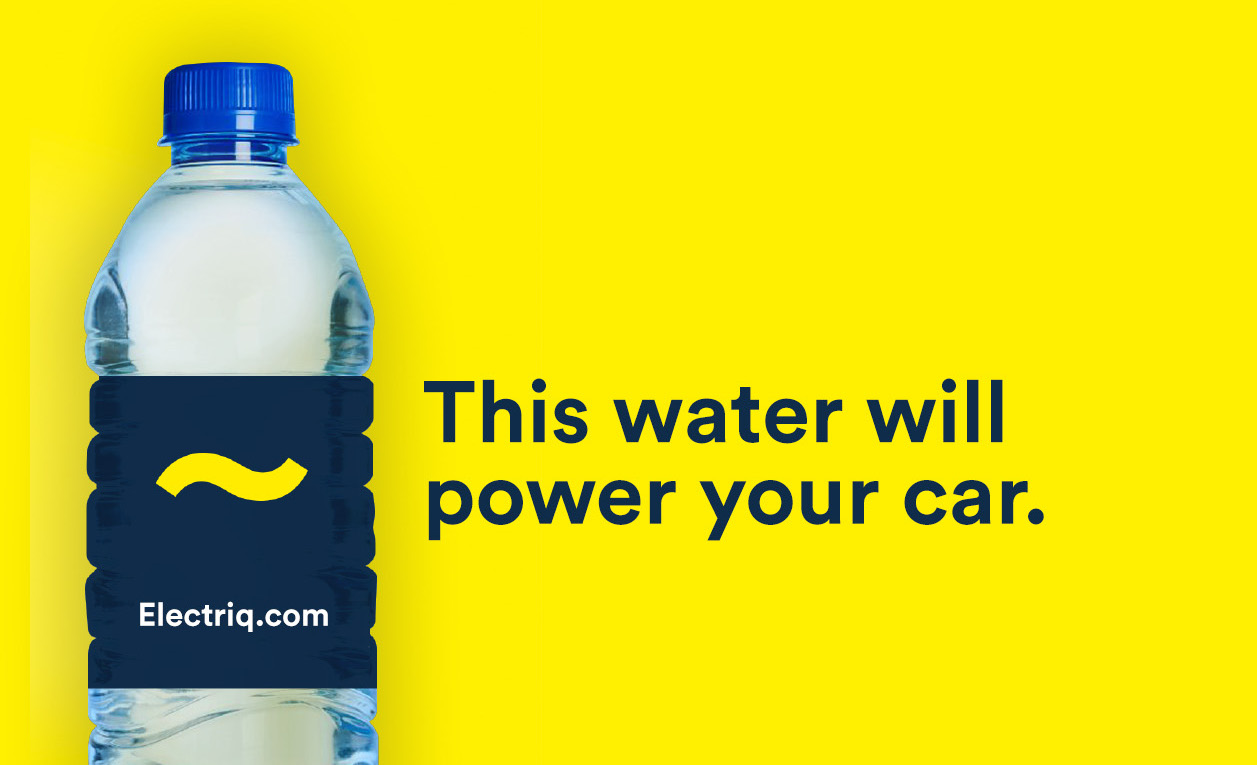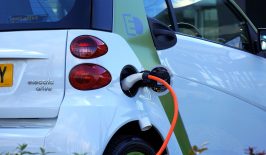One Australian – Israeli startup claims to have created a zero-emissions fuel that is cheaper, cleaner and more efficient than the current competition.
When it comes to so-called “zero-emissions” transportation, most people focus on electric vehicles, powered by lithium-ion batteries as the key to a greener future. But EV’s have their downsides too, that have held back their widespread take-up – their limited driving range, relatively long charging times and (still) relatively high cost.
Another alternative is cars powered by hydrogen fuel cells – like those powering a couple of trains in Northern Germany since September of this year – but the infrastructure for fuelling vehicles run on compressed hydrogen (such as hydrogen filling stations) is still lacking and due to the costly and hazardous nature of transporting large amounts of hydrogen, it is thought to be incredibly expensive and complex to install on a large-scale.
Australian-Israeli startup Electriq~Global claims that they’ve come up with an innovative alternative – a fuel that compared to the alternatives can power an electric car car “for up to twice the range at half the cost” of current alternatives. It is said to have zero emissions and is based, primarily, on water.
So How Does This Magical Sounding Solution Work?
The company’s system has three central elements: their liquid fuel (Electriq~Fuel, which is made of 60 per cent water) which reacts with an on-board catalyst (Electriq~Switch) and releases hydrogen on demand, which is then harnessed to order to create electricity which powers the vehicle. The used fuel is recaptured before being extracted and taken back to an Electriq~Recycling plant where it is replenished with hydrogen for re-use.
The on-board Electriq system generates hydrogen on-demand by controlling the physical interface between the Electriq switch (catalyst) and the fuel. The H2 generated by the fuel is immediately consumed by the fuel-cell and turned into electricity. “As such, the system is safe and does not contain hazardous H2 gas at any given time,” explains Guy N. Michrowski, CEO. Moreover, leftovers from the fuel can be recycled to produce the new one, so that “the footprint of our technology is zero when we use renewable energy to recycle our fuel,” Michrowski states.
While Electriq~Fuel is made up of 60 per cent water, the other 40 per cent is a chemical mix, primarily a salt chemical named BH4. Once the catalyst comes into contact with the solution, the reaction starts. During this reaction (hydrolysis) 50 per cent of the hydrogen is produced by the decomposition of the water molecules (H2O) and 50 per cent from the decomposition of the salt (BH4). The solution becomes water and BO2. There are no emissions or pollution emitted during the reaction. The only outputs are hydrogen and heat.
“Water as a source of power is the cleanest and most environment-friendly energy carrier available. Using water as a source of hydrogen prevents generation of additional CO2 emissions. Moreover, water is already being used today as feedstock for production of H2 and other fossil fuels, so consumption would not increase – it would simply be made more efficient. The system efficiency is high and we extract 100 per cent of the stored hydrogen in our fuel,” Michrowski claims.
The company’s CEO also assures us that “filling up” the tank will be as easy as it is at a petrol station: an Electricq pump could simply be added alongside the pumps for conventional fuel. The only difference being that there will be a double nozzle – so that fresh fuel can be pumped in while used fuel is pumped out.
They estimate that a tank of its fuel will cost 25 USD – less than filling up with petrol or hydrogen – and on a full tank, a car will be able to travel 1000 kilometres. Exact figures and savings are difficult to work out, however, because of all the different variables that come into play – including fuel tank size and the size and type of vehicle that is being powered.
Electriq~Global claims that now the solution has been proved in the lab and in demonstrations with an e-bike, they’re now working on developing vehicle prototypes together with car manufacturers, and partnering with China’s largest fuel-cell vehicle and hydrogen manufacturer to develop a truck powered by Electriq fuel.
What are Electriq~Global’s next steps? “To build the local eco-system required in various different countries – including working with fuel recycling and supply partners and application developers,” says Michrowski.
While we wait to see if Electriq’s ambitious plans become reality, other companies continue working on other ways to make the transport sector more sustainable: from blockchain solutions to make ensure EV batteries are conflict-free to the world’s first recyclable car, made out of flax and sugar.







